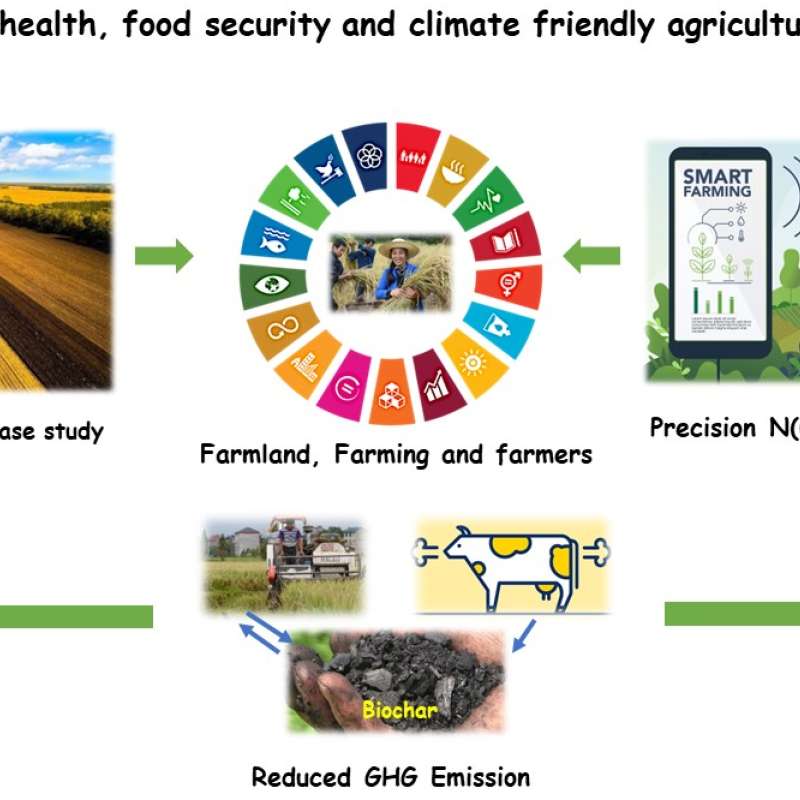Nicholas Clarke
Research Professor
Biography
Abstract
We assessed soil organic carbon (SOC) stocks and changes across six upland forest sites with 13replicated plots, spanning bioclimatic regions from the boreonemoral to the northern borealzone. The sites included three ICP Forests Level II plots in older coniferous stands and threelong-term experiments focusing on thinning intensity, tree species effects (Norway spruce, Scotspine, silver birch), and mixtures of Norway spruce and downy birch, the latter two followingclear-cutting. Repeated soil surveys spanned 9–34 years. SOC stocks in the organic LFH horizonranged from 1.4 to 3.6 kg m−2, while total stocks down to 30 cm and 70–100 cm mineral soildepths ranged from 3.0 to 13.5 kg m−2 and 8.5 to 17.5 kg m−2, respectively. Annual SOC stockchanges in the LFH horizon ranged from −106 to 111 g m−2 yr−1, with significant changesobserved in five plots. Total SOC stock changes down to 15, 18 or 20 cm mineral soil depthranged from −77 to 154 g m−2 yr−1, with significant increases detected in two ICP level II plots.Sensitivity analyses supported these findings but highlighted inconsistencies in samplingmethods, hight spatial variability, and limited replicates, affecting estimates in the remaining 11plots.ARTICLE HISTORYReceived 31 March 2025Accepted 8 July 2025KEYWORDSBoreal forest; downy birch;Norway spruce; Scots pine;soil organic carbon; SOC;SOC stock changesIntroductionForest ecosystems are crucial biomes for carbon (C)storage, with boreal forests playing a significant role asa C sink (Pan et al. 2011; Watts et al. 2023). Globally,the soil organic carbon (SOC) pool contains more thanthree times as much C as the atmosphere (Schmidt etal. 2011). From a climate perspective, the importanceof SOC storage is tied to its overall size as well as itspotential as a long-term reservoir. Estimates of SOCstocks in boreal upland forests suggest 3–4 times moreC relative to the aboveground tree biomass (Scharle-mann et al. 2014; Bradshaw and Warkentin 2015). Thebiological stability of SOC is mediated by a broad setof environmental drivers, notably temperature and soilmoisture content (Soucémarianadin et al. 2018).Additionally, microbial communities play an importantrole in both decomposition and accumulation of SOC(Lindahl et al. 2021; Gundale et al. 2024), processesthat are further influenced by forest management prac-tices (Mayer et al. 2020; Jörgensen et al. 2022) and treespecies (Mundra et al. 2022, 2024). The effect of treespecies on SOC stocks may primarily influence the distri-bution of SOC within the soil profile rather than the totalSOC stock (Vesterdal et al. 2013; Kjønaas et al. 2021). Thisdistribution, however, affects the stability of SOC and itsvulnerability to decomposition, consequently impactingthe CO2 flux from the soil (James and Harrison 2016;Cotrufo et al. 2019; Georgiou et al. 2024).Estimated C allocation in Norwegian forests is approxi-mately 21% in vegetation and 79% in soil (Grønlund etal. 2010). SOC stocks in Norwegian forest soils are con-sidered higher compared to those of Sweden andFinland (Olsson et al. 2009; Rantakari et al. 2012; Strandet al. 2016). This disparity may partly stem from varyinginventory methods. However, differences in precipitationand temperature gradients account for approximately68% of the variability in SOC stocks across Nordic forests(Callesen et al. 2003), suggesting that climate factors alsoplay a significant role. On a European scale, coniferousforest soils represent one of the largest and most vulner-able SOC stocks (Lugato et al. 2021). The size and stabilityof the SOC stock may determine the magnitude of© 2025 The Author(s). Published by Informa UK Limited, trading as Taylor & Francis GroupThis is an Open Access article distributed under the terms of the Creative Commons Attribution License (http://creativecommons.org/licenses/by/4.0/), which permits unrestricted use,distribution, and reproduction in any medium, provided the original work is properly cited. The terms on which this article has been published allow the posting of the AcceptedManuscript in a repository by the author(s) or with their consent.CONTACT O. Janne Kjønaas janne.kjonaas@nibio.noSupplemental data for this article can be accessed online at https://doi.org/10.1080/02827581.2025.2533379.SCANDINAVIAN JOURNAL OF FOREST RESEARCH2025, VOL. 40, NOS. 7–8, 321–356https://doi.org/10.1080/02827581.2025.2533379
Authors
Arne Verstraeten Andreas Schmitz Bernd Ahrends Nicholas Clarke Wim de Vries Karin Hansen Char Hilgers Carmen Iacoban Tamara Jakovljevic Per Erik Karlsson Till Kirchner Aldo Marchetto Henning Meesenburg Gunilla Pihl Karlsson Anne-Katrin Prescher Anne Thimonier Peter WaldnerAbstract
No abstract has been registered
Authors
Igor A. Yakovlev Thiago Inagaki Junbin Zhao Pierre-Adrien Rivier Hege Særvold Steen Inger Heldal Daniel Rasse Jihong Liu Clarke Nicholas ClarkeAbstract
No abstract has been registered

